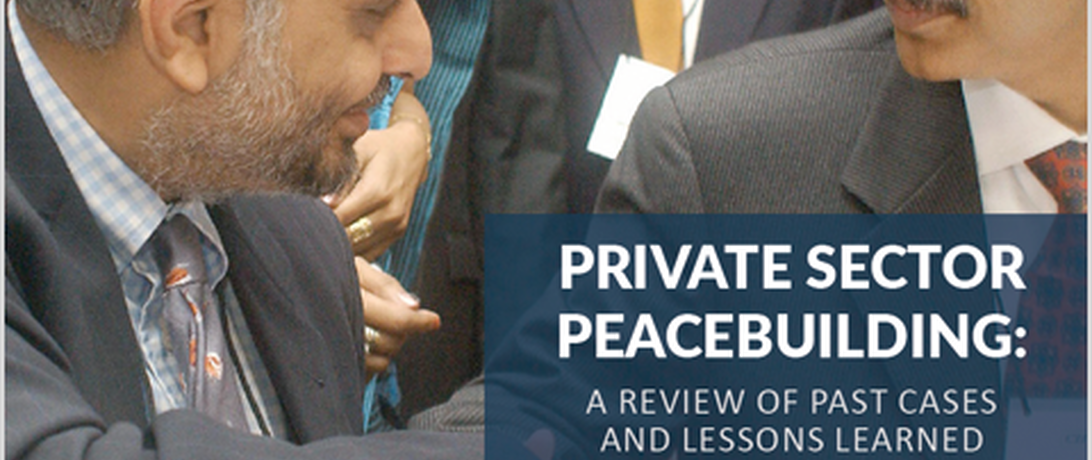
This report reviews a dozen case studies of business engagement in peacebuilding across a variety of private sector actors, strategies, and time. It was developed as a partnership with UN Peacebuilding Support Office and PeaceNexus Foundation with engagement from the UN Global Compact, and is intended to supplement the UN Peacebuilding Fund Guidance Document on business and peace by providing concrete examples and lessons-learned about where, why, and how businesses have deliberately attempted to contribute to peace and security.
Key Findings
- Private sector engagement in peacebuilding includes a spectrum of activities. Cases in this report include direct engagement in negotiation or peacebuilding, protection of civilians, economic peacebuilding, and several other approaches. There is not one single role for business engagement in peace.
- Business association engagement appears to be more related to sustainable peace than single-actor interventions. Because peacebuilding requires a systemic intervention, cases involving business associations or coalitions able to operate at scale seem to be more associated with sustainable peace than single actor interventions.
- Individuals matter. In the majority of cases, the decision to engage in peacebuilding and the drive with which the business pursued it appears attributable to individual leaders within the company or organization. Finding committed individual partners may be important for effective private sector engagement.
- Successful interventions require multiple actors. Sustainable interventions appear to be most effective when the private sector partners are part of a larger system of political and civil society groups working towards peace.
- Innovation has not replaced tried-and-true methods. The cases include several attempts to deliver peace through innovative approaches targeting issues such as military expenditures or interpersonal contact through technology. In this set of examples, these cases are less effective than interventions focused on more traditional issues of economic development and political engagement.
- There are multiple motivations for intervention, but economic interests persist across cases. The private sector actors in these cases appear motivated by multiple issues including humanitarian concerns or principles. However, across the cases the most consistent reason for engagement is economic interest and many cases demonstrate a blended approach focusing on economic interest as well as principle.